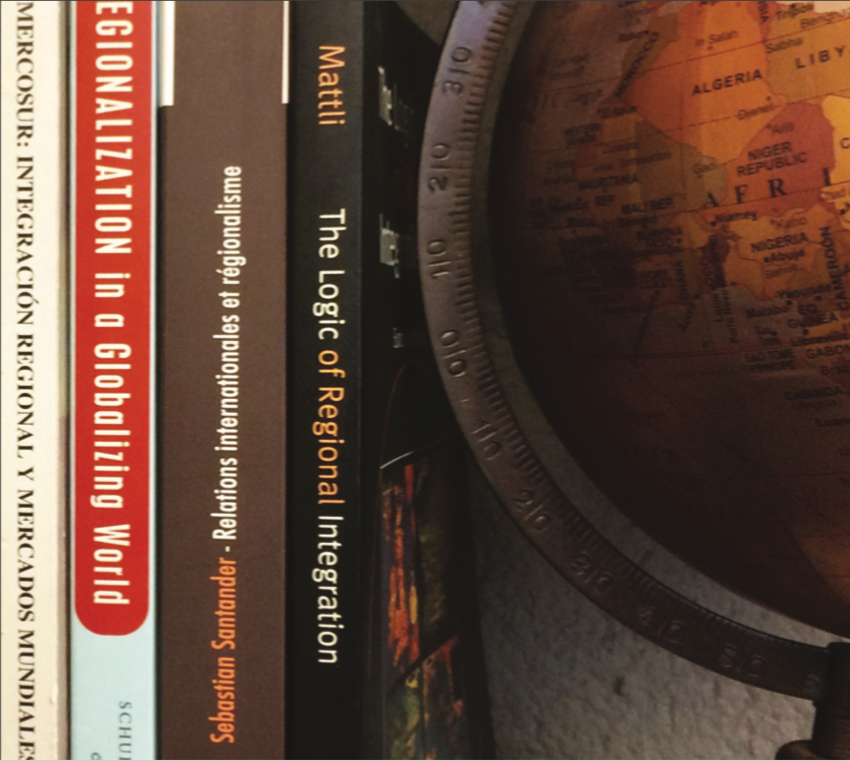- Accueil
- 5/2024 - Resilience of global regionalism in times...
- Kosovo’s Foreign Policy and Bilateral Relations, by Liridon Lika (ed.), London and New York, Routledge, 2023.
Visualisation(s): 846 (7 ULiège)
Téléchargement(s): 0 (0 ULiège)
Kosovo’s Foreign Policy and Bilateral Relations, by Liridon Lika (ed.), London and New York, Routledge, 2023.

1This book edited by Liridon Lika presents a comprehensive and multidimensional analysis of the foreign policy and bilateral relations established by the young Republic of Kosovo, which celebrated its 15th Independence Day in February 17, 2023. The book is designed to scrutinize Kosovo’s foreign policy and its bilateral engagements, with a specific emphasis on its connections with twelve countries that have historically maintained diplomatic relations with this state. To maintain a coherent and structured approach, each chapter meticulously delves into the diplomatic relations of one particular country spanning the years from 1999 to 2023. This examination includes both the pre-independence period (1999-2008) and, more notably, the post-independence era (2008-2023) with a focus on the following states: Albania, Austria, Belgium, Croatia, France, Germany, Montenegro, North Macedonia, Sweden, Turkey, the United Kingdom (UK), and the United States (US).
2Structured around the central objective of identifying the factors that have influenced Kosovo’s foreign policy and its relationships with the aforementioned countries, this book aims to address the dearth of academic literature concerning Kosovo’s foreign policy, moving beyond the conventional examination of the roles played by internal and external actors in state formation, state-building, recognition, and membership in international organizations. Consequently, this volume holds considerable value for students of Balkan politics, state-building, foreign policy, and, more broadly, the field of International Relations (IR). Moreover, it delves into various facets of diplomatic relations, encompassing themes such as history, security, diplomacy, national interests, trade, economic interactions, military affairs, cultural exchanges, educational ties, tourism, the cultivation of human capital, and technology transfers. While the chapters are thoughtfully structured to allow independent reading, several overarching themes persistently thread through the entire book, ensuring a coherent and interconnected exploration of Kosovo’s foreign policy and its relationships with the specified countries. As Lika clarifies, the present book “argues that Kosovo’s foreign policy is implemented to maintain, develop, and increase the position of the young state on the international stage. By interacting and developing bilateral relations, mainly with the Western states and allies with which it shares similar values and interests, Kosovo exercises its sovereignty and is present on the international stage” (p. 19).
3First and foremost, a central element of this unifying approach is Kosovo’s discernible inclination towards Western foreign policy orientation. The book offers a comprehensive elucidation of Kosovo’s distinct alignment with the Western world, underscoring its aspirations for Euro-Atlantic integration through active pursuit of membership in the European Union (EU) and the North Atlantic Treaty Organization (NATO). As the scholars consistently argue, this overarching strategy entails leveraging the support of Western allies. Notably, the US stands out among these allies, providing Kosovo with indispensable political backing, economic assistance, and security guarantees crucial for preserving the territorial integrity of the young state.
4Second, the historical backdrop of Kosovo’s protracted struggle for liberation and statehood consistently features prominently in each chapter, emphasizing its profound impact on contemporary foreign policy dynamics. Additionally, the book emphasizes the geopolitical intricacies of the Western Balkans, which play a pivotal role in shaping Kosovo’s bilateral relations. Neighboring countries, such as Albania, North Macedonia, and Montenegro, assume significant roles in Kosovo’s foreign policy landscape due to their geographical proximity, historical ties, and Euro-Atlantic perspective.
5The third overarching theme that permeates all chapters of this book is the substantial influence of the Albanian diaspora, particularly in Western countries such as Sweden, Belgium, Croatia, the US, and Germany. This diaspora effectively serves as a bridge connecting Kosovo with its host countries, contributing to international solidarity and the recognition of Kosovo’s statehood. Interestingly, it is worth noting that the support of the Albanian diaspora extends to the contributors of this book, all of whom share Albanian heritage from the Albanian-speaking territories.
6Furthermore, the book also provides valuable insights into a theme that remains significantly underexplored within the field of IR – the place and role of small states when compared to their more influential counterparts, the great powers. Nonetheless, every contribution in this book underscores the significance of studying small states’ foreign policies, which are intricately linked to specific objectives, chiefly centered on their survival and security. In the case of Kosovo, it becomes evident that, given its limited resources and capabilities, the achievement of its two core objectives hinges on forging alliances with external actors. This strategic imperative manifests in Kosovo’s continuous efforts to align itself with the EU and the NATO, with, as previously noted, the ultimate aim of securing full membership in these organizations. Concurrently, Kosovo grapples with persistent threats to its survival and security, primarily stemming from its neighboring state, Serbia, and Serbia’s longstanding ally, Russia.
7In conclusion, while some readers may regret the absence of research on Kosovo’s diplomatic relations with non-Western states, including developing countries or even those nations that do not formally recognize Kosovo but maintain diplomatic ties, the book offers a meticulously documented analysis of Kosovo’s foreign policy strategy and its multifaceted bilateral relations with specific countries. As a result, this edited book serves as a valuable foundation for further study into Kosovo’s global diplomatic engagements, shedding light on its foreign policy landscape and providing a compelling starting point for exploring its relations with a broader spectrum of international actors.






